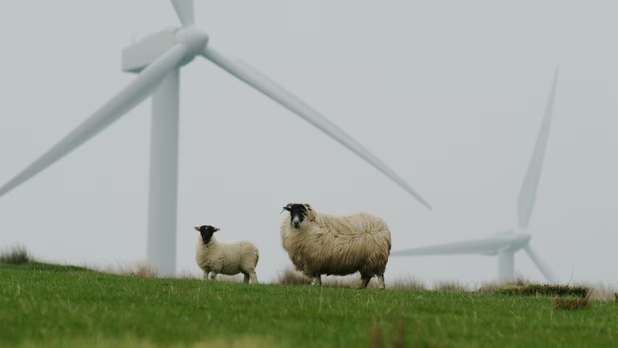Tax Rebates in Montana: Everything You Need to Know
Montana residents have long enjoyed the benefit of living in a state without a general sales tax. However, with fluctuating economic conditions and changing government policies, the state has introduced various tax rebate programs aimed at offering financial relief to eligible taxpayers. These programs are designed to return a portion of collected taxes back to the citizens, ensuring fair redistribution of resources. This article delves into the key aspects of Montana tax rebates, covering eligibility, application processes, and the impact of these rebates on households.
Understanding Tax Rebates in Montana (MT)
Tax rebates in Montana are structured to provide monetary benefits to individuals who meet specific criteria. Unlike tax deductions or exemptions, which reduce taxable income, rebates involve returning a portion of previously paid taxes to qualifying taxpayers. The Montana Department of Revenue administers these programs, ensuring compliance with state laws and budgetary allocations.
The primary objective of these rebates is to ease the financial burden on taxpayers, particularly during economic downturns or periods of surplus revenue. Over the years, Montana has implemented various rebate initiatives targeting property owners, income taxpayers, and specific demographic groups like veterans and low-income households. These programs often reflect the state’s commitment to maintaining fiscal balance while supporting its residents.
Rebates are funded through state revenues, including income taxes, property taxes, and other collections. With Montana's economy heavily reliant on natural resources and tourism, fluctuations in state income can influence the availability and size of tax rebates. As such, taxpayers must stay informed about the latest updates regarding eligibility and application timelines.
| Rebate Type | Eligibility Criteria | Maximum Amount | Application Deadline |
|---|---|---|---|
| Property Tax Rebate | Montana homeowners paying property taxes | $500 | December 31, 2025 |
| Income Tax Rebate | Individuals earning below $75,000 annually | $1,250 | April 15, 2025 |
| Energy Assistance Rebate | Low-income households with energy expenses | $300 | November 30, 2025 |
Eligibility for Montana Tax Rebates
Eligibility criteria for tax rebates vary depending on the type of rebate. For instance, property tax rebates are primarily available to homeowners who have paid their property taxes in full within the qualifying year. In contrast, income tax rebates target individuals or families within specific income brackets. Meeting these conditions is crucial for securing financial benefits.
Some of the common eligibility requirements include:
- Residency: Applicants must be legal residents of Montana during the qualifying tax year.
- Tax Compliance: All state taxes must be paid in full, with no outstanding liabilities.
- Income Limits: Certain rebates, like the income tax rebate, have predefined income thresholds.
- Documentation: Proof of tax payments and other supporting documents must be submitted with the application.
For specific programs, such as the Energy Assistance Rebate, additional criteria like household energy expenditure or participation in federal assistance programs may apply. Eligible applicants should review the detailed guidelines provided by the Montana Department of Revenue to ensure they meet all conditions.
How to Apply for Tax Rebates in Montana
The application process for Montana tax rebates is straightforward but requires attention to detail. Applicants must follow the steps outlined by the Montana Department of Revenue to ensure their requests are processed without delays. Failure to provide accurate information or submit required documents can lead to rejection.
Key steps in the application process include:
- Check Eligibility: Review the specific rebate program's eligibility criteria before proceeding.
- Gather Documents: Collect necessary documentation, such as tax returns, proof of property ownership, or utility bills.
- Submit Application: Fill out the rebate application form available on the Montana Department of Revenue’s website or local offices.
- Track Status: Use the online portal to monitor the status of your application and address any issues promptly.
Applications can often be submitted online, providing convenience to residents across the state. However, for those without internet access, paper applications are typically accepted at local government offices. Ensuring timely submission is critical, as missing deadlines may disqualify otherwise eligible applicants.
The Impact of Tax Rebates on Montana Residents
The financial relief provided by tax rebates has a significant impact on households across Montana. For many residents, these programs represent an opportunity to recover a portion of their hard-earned money, helping them address essential expenses like housing, healthcare, and education. Moreover, rebates foster economic stability by increasing disposable income, which, in turn, stimulates local businesses.
Notable benefits of tax rebates include:
- Reduced Financial Stress: Rebates help families manage unexpected expenses or reduce debt.
- Economic Boost: Increased consumer spending supports small businesses and the state’s economy.
- Fair Redistribution: Rebates ensure equitable use of surplus state revenue.
- Incentive for Tax Compliance: Offering financial returns encourages residents to stay compliant with tax obligations.
While these programs have positive effects, challenges such as delayed payments or limited funding can sometimes hinder their effectiveness. Addressing these issues requires ongoing collaboration between policymakers and citizens to optimize the system.
Conclusion
Montana's tax rebate programs provide substantial financial support to residents, demonstrating the state's commitment to economic equity and fiscal responsibility. With rebates ranging from $300 for energy assistance to as much as $1,250 for income tax relief, these programs directly benefit thousands of households. In 2023 alone, over 100,000 Montana taxpayers qualified for various rebate initiatives, collectively receiving more than $75 million in financial aid.
These rebates not only alleviate individual financial burdens but also inject vital funds back into local economies, fostering growth and stability. By maintaining awareness of eligibility requirements, deadlines, and application procedures, Montana residents can take full advantage of these opportunities. With the state's ongoing efforts to improve these programs, taxpayers can look forward to continued support and fair redistribution of resources in the years ahead.
Evaluation of IQTaxHub
Pros
- Reduces overall tax burden
- Incentivizes eco-friendly choices
- Provides financial relief
Cons
- Complex application process
- Limited availability
- Possible processing delays

Last modified: November 21, 2024 at 7:22 p.m.

